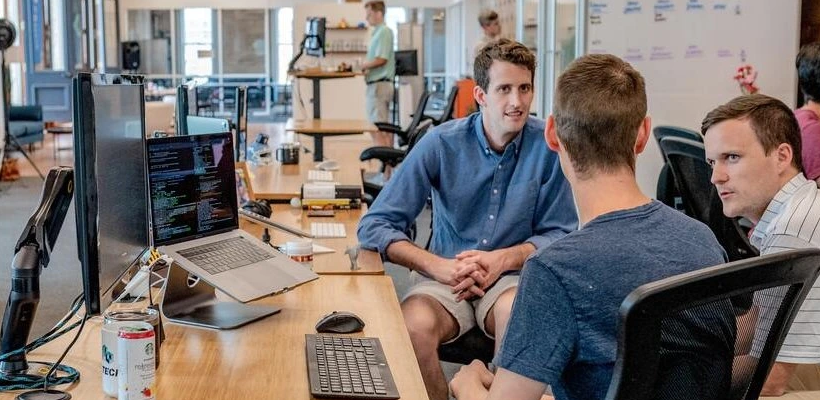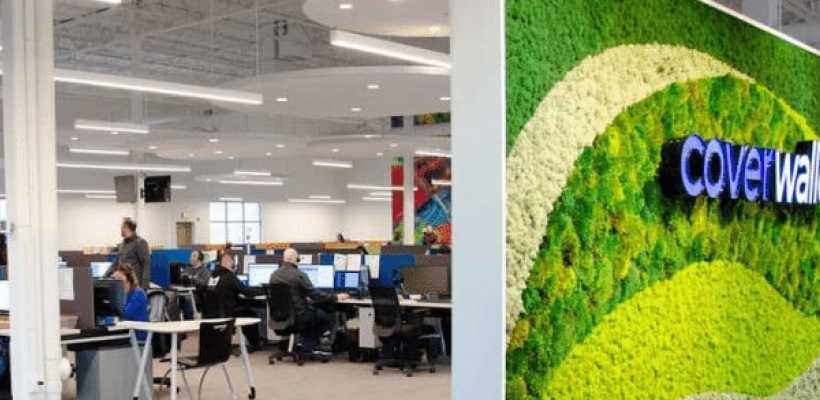We had the opportunity to speak with the HR expert Lex Verweij, who has dedicated his career to the profession of HR. With multiple experiences in the fields of HR Technology, Recruitment, Talent, Development, Reward, Performance, and Mergers & Acquisitions. Lex currently works as the chair of the pro bono committee for the Guild of HR Professionals, which strives in giving back to the community whilst advancing the profession of Human Resources. In this interview, we discuss Lex’s experiences working within the HR sector and with HR software.
Tell Me a Bit About Yourself. How Your Career Evolved Into What It Is Today?
I studied economics with no intention of joining the HR function. However, as in my last year before graduation as I was applying for jobs, I applied for all different kinds of roles. This included marketing, banking, consulting and more. There was this one company that invited me for an interview, and what was striking about was that they let me in on a client case. They let me brainstorm with them about the client case and that’s how I rolled into HR, and I never left.
I was an HR consultant for a long time, at first specialising in rewards. Later on, I started specializing in talent management, performance management, and executive compensation. I went through all the main different functions within HR and ended up really focusing more on modern HR. My interest evolved into topics such as agile ways of working and modern HR technology.
You Have a Lot of Experience in Different Roles. What Made You Start Focusing More on the Field of HR?
I truly enjoy HR otherwise I would have tried to make a switch at some point, but I guess the first job just happens to you, and the second you choose. And I chose HR again because, by that time after 8 years in my first experience, I was quite professional, so I could make decent money and work on fun projects. I lived in the US, in Switzerland, travelled to China. So I was really enjoying it. If I didn’t enjoy HR, I would have made a switch after my first job, but I really enjoy being an expert on a topic that really matters. In the sense of, if a company wants to do well it needs to think really carefully about its people policies and how to attract and retain employees.
Could You Tell Me a Bit More About Your Current Company and Your Role Within It?
The Guild of Human Resource Professionals is not actually a company. So to give a bit of background on the Guild of HR. The livery companies in the UK are professional organisations around sectors and professions. These kinds of companies have been around such a long time and there are multiple different ones such as IT management consultants, spectacles – their purpose is to organise the sector, so to set a professional standard but also to give back to society and that’s where the Guild for HR comes in. The Guild is a title for a Livery company that hasn’t fully established itself yet. So we’re still quite young but we are founded with the idea of getting very senior professionals together who will give back to society. So my role is a volunteer role. I’m on the court of the Guild and I’m the chair of the pro bono committee- this means I do pro bono work for charities such as helping young people find a job in HR.
We do a lot of work with charities to give back. Because we’ve been in HR for so many years, so we want to give back. The other thing we do is enable senior HR professionals to come together and talk about issues. So we have a platform where people can talk about COVID, how to best deal with remote working, the return to work, to help give back to society and give back to the profession.
What Work Does the Guild of Human Resource Professionals Specifically Do to Advocate and Further Promote the HR Profession?
We have an executive leadership program for HR professionals- so anyone in the second stage of their career (30-40s) and wanting to break into the board level or executive level, we have a programme that prepares people for that role. We work with very young people who are trying to find a job in HR, but we also have apprenticeship opportunities. This means that you can join the guild in your early 20s with very little experience in HR- you can become a member and then we mentor and coach you to become an HR professional. This occurs through coursework but mostly through working with executive leaders in the Guild. This is now entirely online, I’m currently mentoring 2 young professionals at the moment.
On Your LinkedIn Bio, You Talk About Improving the Employee Journey and Moving to Agile Ways of Working. How Exactly Do You Instigate This?
Being a professional in HR myself, I come from the same background where if you have a problem in recruitment or in retention, the reward professionals will say it’s because you don’t pay enough. Talent management will say well we don’t give enough career opportunities or clarity and transparency regarding career opportunities, and the recruiters will say our representation is bad or our branding is bad. When actually it’s all 3 of them. A very old fashioned way of thinking about HR is identifying problems only through the different HR functions such as performance management or recruitment for example.
Hence, what we’re trying to do now with HR is really think about it in a more comprehensive and agile way. This means we organise around the employee journey, clarify what that looks like today, what it should look like in the future, what the problem areas are, and then define what the solutions could be to the problem. Therefore, putting all functions together, and that’s actually an agile way of understanding HR. So if you organise HR around the journey for reward talent and recruitment to work together in solving the problem, then that’s a far more effective way of approaching the solution.
Have You Had Any Experience Working With HR Software? If So, What Are Your Thoughts on the Importance of It?
Most of these transformations in HR, such as the digitalisation to become a more modern HR function start with software. One of the reasons for this is that HR doesn’t have the big budget compared to marketing, finance, logistics, or operations so whenever there’s a big investment in the software program, that’s the only chance the HR function gets to really redesign itself and rethink what their purpose is and how they’re going to achieve that through their organisation. So HR software is very often the starting point financially. Secondly, it’s also a starting point because all these software programs streamline HR operations and bring more self-service.
Those 2 factors alone are going to reduce costs in HR, increase the efficiency of the HR operation, and make it easier for employees and managers to manage the processes involved in HR. That alone is already creating so much freedom to rethink what HR can do, that’s a really good factor to take into account.
I have a preference for software from SAP Success Factors and Oracle because as a technical geek I look at their product development roadmap and what they’ve got coming in terms of developments AI, RPA, combining data like google does to find the issues and the solutions. What Google does when you’re on your computer due to cookies, Google knows exactly what you’re looking for.
I recently got a puppy. Now, whenever I open my laptop to go on the internet, Google knows exactly that I’m looking for puppy food and dog toys. In HR we can do the same thing – imagine you’re on a business trip. As HR we know you’re going to have to manage expenses, you’ll need insurance, hotel, food, appointments, an itinerary etc. HR software can be a huge help in this. All you need to do is take a photo of your receipt, take a photo of your boarding pass, and the rest will all be taken care of and that is what’s happening in HR right now.
What Is Your Experience With People Analytics and How Beneficial Is It in Instigating Positive Change Within Businesses and Employees?
The other thing software is making available is consistent and real-time data. This is extremely important because it allows you to look at historical data, especially HR- leadership development. Just reading a book about any successful company is not enough. With people analytics you can make the actual problem in your organisation specific, so what is it about leadership that you’re lacking in your organisation? Is it how leaders are coaching and mentoring people? Perhaps it’s about how leaders are creating a safe environment? Is it how a pipeline of leadership is developing?
With people analytics, you can start zooming in on what is the actual problem in our company. What would be the potential solution, and what is the return on investment on that solution? You can actually go back and say looking at our financial data historically. You can look at the problem and how it’s affected our financial data. With this intervention, we can create the best return on this investment. It provides you with a much stronger proposition to go to the CEO and say you need money for our HR program.
Do You Believe HR Software Is Conducive to Accomplishing the Growth of Businesses? If So, How?
Yes- and every CEO believes that. HR professionals sometimes complain that CEOs don’t believe in HR. I don’t believe that’s true. CEOs believe in HR and people management. They just don’t believe in an HR professional reading a book and then saying that everyone is doing this so we should do it too. Instead, they want a very specific solution. They want to know what are my leaders doing wrong, what is specifically going wrong with the company and what can I do to solve this. HR software gives you the data and the tools to do this.
What Would You Say Is the Most Important Thing You’ve Learnt Through Your HR-Related Work Experiences?
People matter greatly. Some people in the past regarded HR as being soft and cuddly with people – it’s not about that. Although that’s nice and good, it’s more about being effective with people. Meaning, through everything you do in your organisation, you’re going to touch on the lives of people. Think about what you’re doing, what the impact is, and what you’re expecting from them? Also consider what you’re giving back, and how that affects the performance of your company!

